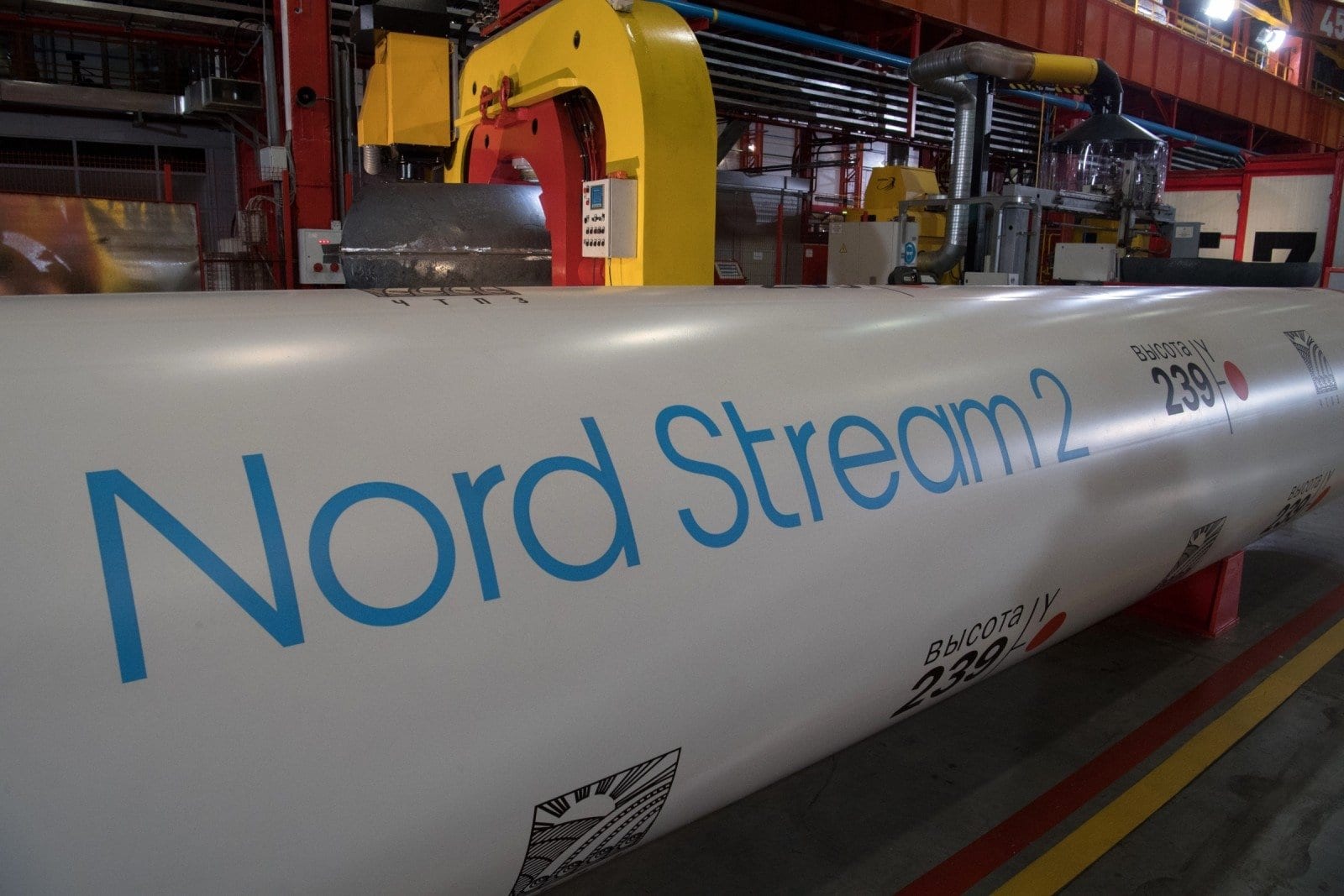When a megaproject makes no commercial sense, there are two possibilities. Either its sponsors are fools, or they have other motives. Since Vladimir Putin is no fool, one must assume that his pet pipeline is not really a business venture—and that the fools are the Europeans, in particular the Germans. This week, after sustained German pressure, the European Union agreed how its energy rules should apply to Nord Stream 2, an $11bn, 1,200km (750 mile) gas pipeline. As a result it is all but certain that the project will go ahead, though perhaps with delays (see Europe section). It runs from Vyborg in western Russia through the Baltic Sea to Greifswald in north-eastern Germany. Work on it began last year, and it could be finished by the end of this one. Economically, it is unnecessary. There is no shortage of capacity in the existing Russian networks, which run from east to west mostly through Ukraine and Poland, or through the existing Nord Stream 1 pipeline directly to Germany. European demand for imported gas, because of energy efficiency, weak demand for manufacturing and the rise of renewables, is not expected to reach a level that would require the new pipeline anytime soon. Unsurprisingly, Russia’s majority state-owned energy behemoth, Gazprom, is the scheme’s only shareholder. The project’s real aims are political. There are three main aspects to this. First, Nord Stream 2 directly harms Poland and Ukraine, two countries that Mr Putin loathes and one of which he invaded in 2014. Currently, most Europe-bound Russian gas passes through Ukraine. Nord Stream 2 will make it easier for Russia to cut supplies to Ukraine without affecting Germany; it will stop Ukraine from dragging Germany into a dispute with Russia by interfering with the supply of gas; and it will deprive the Ukrainian government of transit fees. Without Nord Stream 2, there is a limit to how much mischief Russia can do in Ukraine before it endangers its own economy. Thus, bypassing Ukraine (and Poland, for which the same considerations apply to a lesser extent) is the main point (as it was of an earlier failed venture, South Stream). Nord Stream 2 also gives Russia infrastructure in the Baltic region, a possible justification for beefing up its military presence there. This worries the Baltic states and Nordic states; as well as Poland. Next, Nord Stream 2 will increase Europe’s dependence on Russian energy. By cutting out transit countries and fees, it will be able to charge its customers less. This will be good for German energy consumers, at least in the short term. But further relying on Russia contradicts eu policy, which for the past decade has been to diversify its energy supply, partly for security reasons. One aspect of this policy was to require suppliers of gas to be more open and transparent about their costs, to ensure proper competition and prevent state subsidies. In particular, gas production is meant to be separated from gas transport. It was the attempt to apply this rule to pipelines that originate abroad, like Nord Stream, that was clarified this week. German regulators will have responsibility for implementing the eu’s pro-market energy rules. The European Commission will retain some oversight—better than nothing, but a retreat nonetheless. Angela Merkel, Germany’s chancellor, appears to value cheap energy more than European security. This is rash. As Russia demonstrated in 2006 and 2009, when it restricted the flow of gas through Ukraine, it is ready to use gas as a political weapon. Finally, Nord Stream has divided Western allies, setting eastern Europe against much of western Europe and driving a wedge between Europe and America, which has long opposed the pipeline. Under President Donald Trump, who wants Germany to import American gas, it may yet impose sanctions on participating firms. In short, Nord Stream 2 could make Ukraine, Poland and the Baltic states less secure, undermine the eu’s energy strategy, give Russia a bigger stick for threatening western Europe and sow discord among nato allies. To Mr Putin, causing so much trouble for a mere $11bn must seem like a bargain. For Europe, it is a trap. The mystery is why Germany has fallen into it, and has been twisting French arms into doing the same. Since the invasion of Ukraine, Mrs Merkel has become one of the strongest advocates of eu pressure on Russia. Perhaps the demands of German business, heightened since her wrongheaded decision to close Germany’s nuclear power stations in 2011, trump all else. Or perhaps something darker is at work. She relies for her coalition on the Social Democrats (spd), staunch defenders of Nord Streams 1and 2. The spd’s Gerhard Schröder, a former German chancellor, now sits on the boards of both Nord Stream 2 and also Rosneft, Russia’s oil giant. No one has proved that any of this has influenced German policy towards Russia, but many Germans are alarmed by the possibility. Mr Putin, as ever, is happy to stoke such doubts.
Source: The Economist, 16 February 2019
